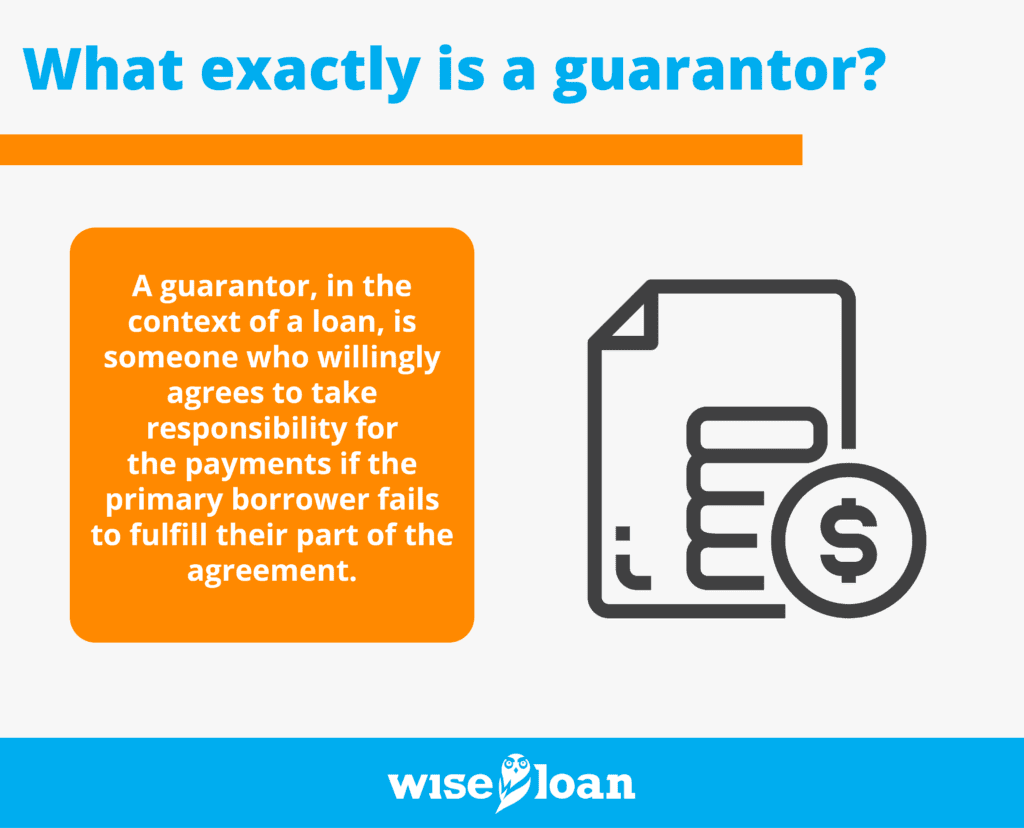Guarantor Personal Loans
When applying for a service, lease, or loan, the company, landlord, or lender seeks assurance that you’ll meet your payment obligations. To assess this likelihood, they typically consider your credit history and income. A strong credit history indicates a track record of timely payments while demonstrating a steady income ensures your ability to consistently cover the payments.
However, if you lack strength in either of these areas, you may require a guarantor to secure approval.
So, what exactly is a guarantor?
A guarantor, in the context of a loan, is someone who willingly agrees to take responsibility for the payments if the primary borrower fails to fulfill their part of the agreement. In many cases, the guarantor also allows some of their assets to be used as collateral for the loan. Consequently, if both the borrower and the guarantor fail to pay as agreed, the lender can take possession of the collateral and sell it to recover the owed amount.
It is important to distinguish between a guarantor and a co-signer. While they seem similar, they have distinct roles. Co-signers typically come into play for secured loans, such as a vehicle loan. A co-signer, in this case, has an equal right to the asset (e.g., a car) and becomes liable for the loan if the primary borrower defaults.

In contrast, a guarantor in a loan doesn’t usually acquire any ownership rights to the item purchased with the loan funds. Instead, they offer their existing assets as security.
To qualify as a guarantor, the individual must meet certain criteria set by the lender. Generally, they need to be a legal adult capable of signing contracts and possess a better credit score than the primary borrower. Other requirements, such as a minimum income or the ability to offer assets as collateral, may also apply.
Guarantee agreements are employed not only in personal installment loans but also in various other scenarios. For example, first-time renters with limited credit history may need a guarantor (often a parent) to sign an agreement, promising to cover rent and fees if the tenant is unable to do so.
It’s important for a guarantor to fulfill their obligation responsibly. Staying in contact with the borrower and being aware of their financial situation helps avoid defaulting on payments and protects the guarantor’s assets.
If you find yourself in need of a loan and believe a guarantor might be necessary, it’s crucial to choose someone with a strong credit score and income. Otherwise, multiple loan applications with rejections can negatively impact your credit score.
While a guarantor loan can be a viable option, it comes with the risk of putting the guarantor’s assets in jeopardy if payments are not made. For those with less-than-perfect credit, alternative options exist, such as Wise Loan’s bad credit installment loans. Wise Loan is a responsible lender that provides fast cash loans online and allows borrowers to rebuild their credit through timely installment payments.
If you’re interested in exploring a personal installment loan without needing a guarantor, you can easily apply through Wise Loan’s simple online application process.
The recommendations contained in this article are designed for informational purposes only. Essential Lending DBA Wise Loan does not guarantee the accuracy of the information provided in this article; is not responsible for any errors, omissions, or misrepresentations; and is not responsible for the consequences of any decisions or actions taken as a result of the information provided above.
More information on Installment Loans and how they work in your state:











